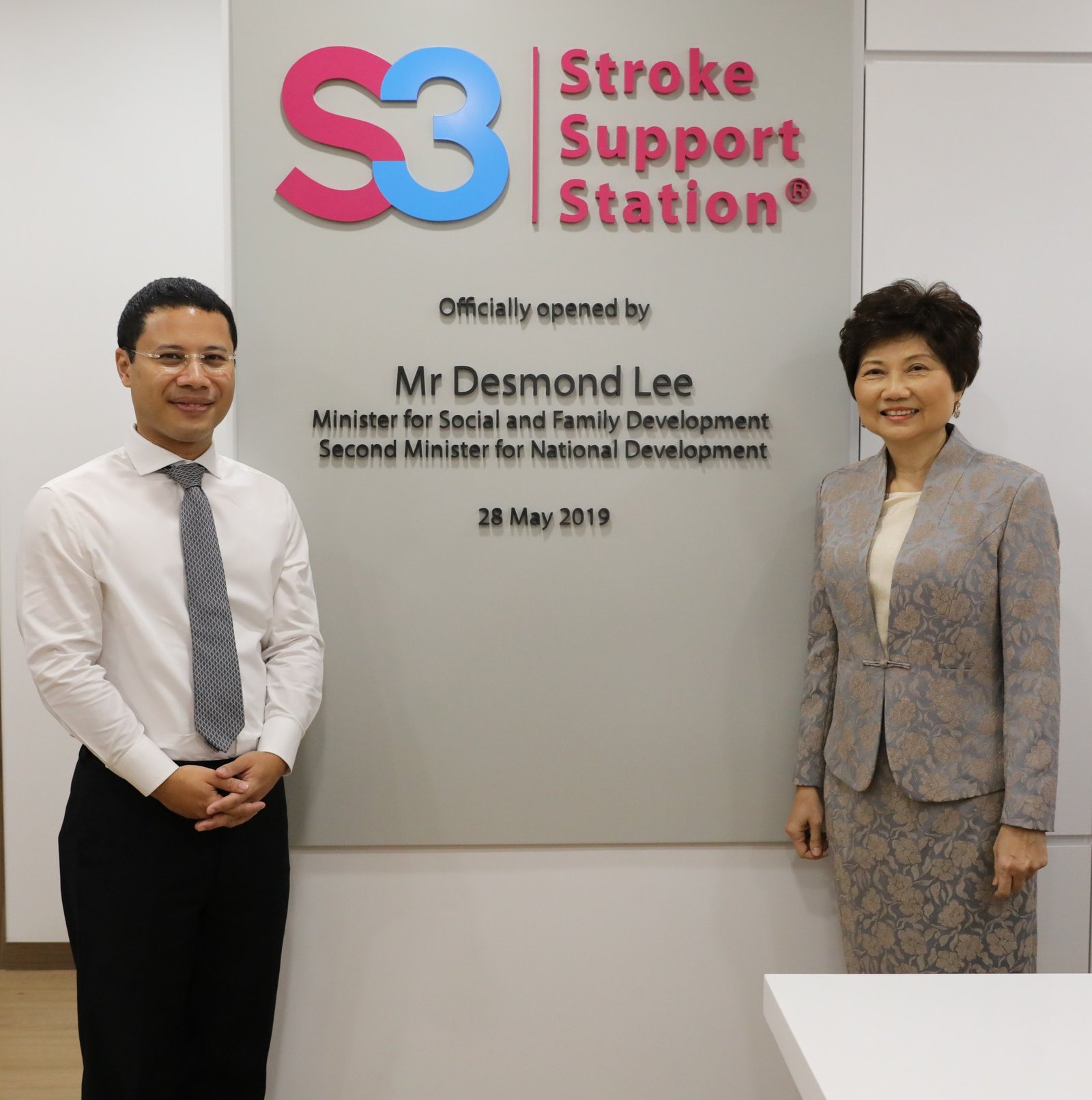
Stroke is the leading cause of adult disability and largest cause of long-term physical disability. In Singapore, there are approximately 7,500 new cases of stroke per year and 80% of the stroke survivors have some disability. As such, the burden of stroke is expected to intensify due to the need for survivors to receive adequate, long-term care.
Started as a ground-up initiative led by volunteers, S3 provides rehabilitation services for stroke survivors and non-stroke patients in the community. Since its inception, S3 has helped close to 400 stroke survivors and near to 430 caregivers in a sustainable manner. The overwhelming demand for programmes has resulted in long wait times.
Catering to the growing landscape, S3 has unveiled its second centre at Jurong Point. Spanning 3,294 sq ft, the new centre is almost twice in size than its current centre at the Enabling Village. The opening was officiated by Guest-of-Honour, Desmond Lee, Minister for Social and Family Development and Second Minister for National Development.
Teo Poh-Yim, Chairman of Stroke Support Station said, "S3’s programmes are currently oversubscribed resulting in long queues. In order to meet the increasing demand for S3’s services, a second centre was necessary. Naturally, Jurong Point branch will focus on residents in the West. In total, the two centres will enable us to provide a total of 45,000 community rehabilitation sessions, impacting the lives of 1000 stroke survivors per year.”
It is an uphill journey for a stroke survivor or a caregiver to resume their normal life after stroke. To help relieve the stresses they face, the programmes available at S3, led by a team of professional therapists and assisted by volunteers, also serves as a support space for many caregivers and stroke survivors. The friendship and support developed at S3 is important to the recovery process.
John Seah, a motivational speaker and business owner, travelled frequently for work prior to stroke. Within a decade, he experienced stroke four times and the last two cases affected his mobility on the left side. He shared, “Since joining S3, my motor skills improved and that gave me confidence. The S3 community provides a supportive environment and encourages me to achieve my goals. Today, I am able to reintegrate back to the society and return to work. I will continue to live life to the fullest and share my journey on stroke to inspire others.”
Dr Wong Chiang Yin, CEO of Stroke Support Station said, “Over the last three years, S3 has provided effective continuum of care for stroke survivors and supported them in not just their mobility but also their socio-emotional and psychological needs through our evidence-based programmes. With the expansion of a new centre and ongoing research studies with our healthcare partners, we hope to better equip both stroke survivors and their caregivers with skills to re-integrate into the community and their family life.”
Dr Wong added, “Stroke-related disability requires much care and assistance from not just S3, but also donors and volunteers to help us to keep going. We continue to appeal to everyone to put in every effort possible and lend a helping hand to the stroke community.”
Being at the forefront of community care for post-stroke care, S3 strives to continually provide effective and advanced technologies to deliver therapy and wellness programmes for stroke survivors. S3 also adopts a tailored approach to meet patient and caregiver needs and ensure that goals are individualised and achievable.
Beyond offering programmes targeted at building mental resilience, functional mobility, cognitive, psychosocial aspects, S3 continues to explore new, innovative rehabilitation options through partnerships with local healthcare institutions. These include pilot projects like:
iMOVE Programme
In collaboration with Alexandra Hospital, S3 will be introducing the Improving Mobility via Exoskeletons (iMOVE) programme from July 2019. The study seeks to look at the use of robotic exoskeleton for rehabilitation of stroke patients facing mobility difficulties. Using robot-assisted device, patients are trained with weight-bearing, weight-shifting, stepping and balancing skills in their legs.
As part of the study, S3 will recruit patients who require rehabilitation to try to regain some walking ability. Eligible patients will undergo 12 sessions within 3 months.
Hand Rehabilitation System
Our hands play an integral role everyday as we grip and hold things. More often than not, we take for granted the simplest thing - the use of our hands. One of the impacts of stroke is the loss of hand functions.
S3 will be collaborating closely together with NUS Institute of Systems Science to develop an intelligent and automated hand rehabilitation system for stroke recovery. The system is envisaged to allow for more effective exercises and monitoring of stroke survivors at S3 centres. It utilizes artificial intelligence, gaming elements and latest sensing technologies in a synergistic manner to improve the overall rehabilitation experience for both survivors and therapists.




